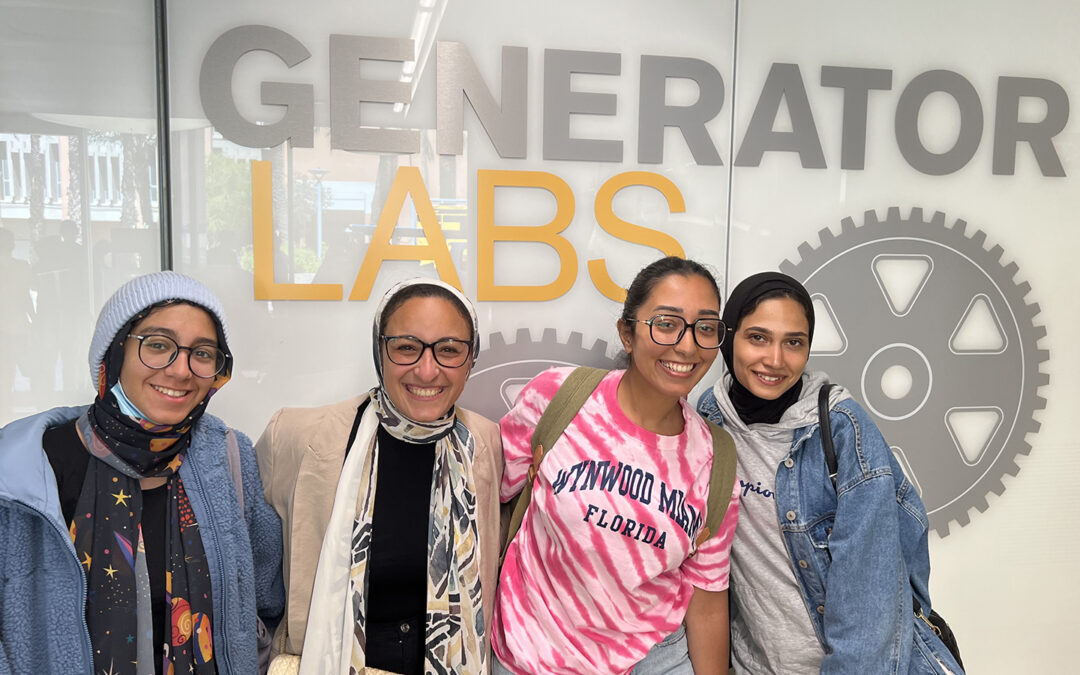As an architect and business sustainability engineer, Mennatullah Mohamed believes sustainable practices, including energy production and consumption, are the future of Egypt. While she recognizes that Egypt’s goal of 42% renewable energy by 2035 is ambitious, she believes it is attainable if everyone works together.
“It is my role to build more energy efficient buildings to decrease Egypt’s energy consumption and in turn decrease the amount of energy needed for production,” Mennatullah says.
She says the USAID-funded Center of Excellence for Energy has supported her journey to have a design-and-build firm that will focus on sustainability through their exchange and training programs. “The energy transition class helps me understand policies and how my business will fit into the overall plans in Egypt,” says Mennatullah.
Mennatullah has long been interested in sustainability. In 10th grade, she learned about Egypt’s limited fossil fuel capacity and became interested in energy engineering. She embarked on research exploring alternative energy sources, for which she was awarded a “Science in Action” semifinalist at the International Science Fair in 2012. She is now seeking her master’s degree in sustainable architectural design from Ain Shams University in Cairo. Her passion grew as she began her studies in architectural design.
“I discovered that the sustainable design process requires a deep understanding of all energy and water systems to create a fully integrated solution,” she says.
Her professor recommended she apply for the Center of Excellence for Energy exchange program. She worried that because her background was in architecture rather than mechanical or electrical engineering that she would not be the ideal candidate, but she was very excited to hear that she had been accepted. “I realized that they were looking for students studying other fields that intersect with energy, which in my case is energy efficiency in green buildings,” says Mennatullah.
She was pleased to see that the center tailored its course content to each student’s field of study and that they provided ample support through orientations, academic support, travel arrangements, and visa processing. She is happy with her academic schedule and has found the entrepreneurship course very helpful.
“It helps me understand the business aspects of building my design firm, aspects that I don’t know because I’m an engineer. My professor is helping me to plan out phases, steps to grow my business,” says Mennatullah.
She appreciates the teaching methods at Arizona State University as “it’s mainly a discussion…more of a two-way conversation” and feels the energy transition course has given her incredible insight into the big picture of Egypt’s new energy era.
She looks forward to broadening her research perspective through continued interaction with international professors and colleagues, which will benefit her long-term plan of having a design-and-build firm specialized in sustainable projects.
